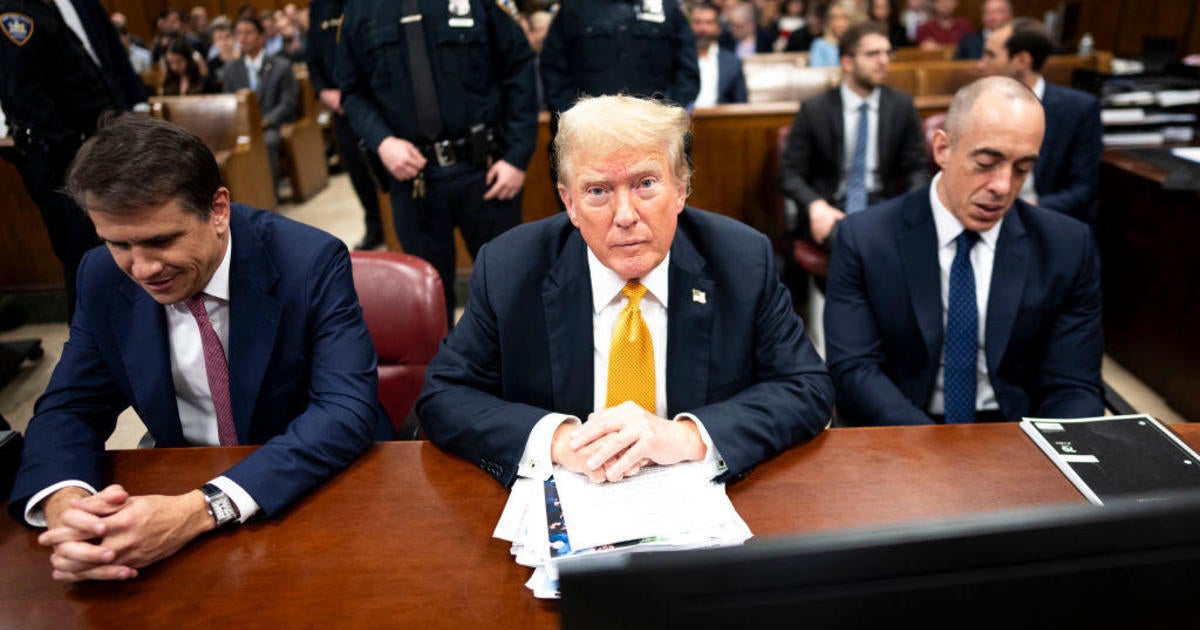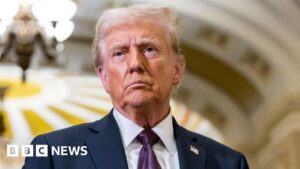
The Supreme Court rejected a last-ditch effort by lawyers for President-elect Donald Trump to forestall his sentencing for his New York criminal conviction.
The five justice majority that voted to deny Trump’s application wrote that the evidentiary issues Trump has complained about “can be addressed in the ordinary course on appeal.”
They also noted that the judge overseeing Trump’s New York case has signaled he will not sentence Trump to serve any time in jail, writing “the burden that sentencing will impose on the President-Elect’s responsibilities is relatively insubstantial in light of the trial court’s stated intent to impose a sentence of ‘unconditional discharge’ after a brief virtual hearing.”
Justices Clarence Thomas, Brett Kavanaugh, Samuel Alito and Neil Gorsuch would have granted Trump’s application for a postponement of sentencing, the majority wrote.
The incoming president sought an emergency reprieve from the nation’s highest court after the New York judge who oversaw Trump’s trial on Jan. 3 sent the president-elect hurtling toward the long-delayed sentencing.
New York Justice Juan Merchan rejected Trump’s latest motions to dismiss the case, and set aside his conviction, which argued a president-elect is entitled to the same protections from criminal proceedings as a president. Trump, who railed against the case for years, also said evidence shown at trial that related to his first presidency violated that same constitutional immunity.
New York prosecutors objected to any further delay of the sentencing hearing, which has now been scheduled four times since Trump’s conviction on 34 felony counts of falsifying business records.
They noted in multiple filings this week that Merchan already telegraphed his sentencing decision on Jan. 3, when he said he was inclined to release Trump without incarceration or any other restriction.
In May, a unanimous jury found Trump guilty for authorizing a scheme to falsify records related to reimbursements for a so-called “hush money” payment to an adult film star. The payment was made before Trump’s first election in 2016, but Trump signed off on the reimbursements to his former lawyer and “fixer” Michael Cohen — and an accompanying coverup — during his time in the Oval Office.
Trump says it was unconstitutional for the jury to see evidence and hear testimony from the years when he was in the White House.
Trump’s lawyers urged the Supreme Court to prevent his sentencing, set for just 10 days before his inauguration, “to prevent grave injustice and harm to the institution of the presidency and the operations of the federal government.”
The case has wound its way to the Supreme Court repeatedly since Manhattan prosecutors began their investigation in 2018. In a landmark 2020 decision, the court ruled that the Manhattan district attorney had the power to subpoena Trump’s tax records. Trump continued to fight their release even after that decision, until 2021, when the Supreme Court again rejected his efforts to shield the financial records.
Merchan gave Trump the option of attending the sentence via video, as opposed to in-person, and prosecutors said in court filings and arguments this week that he has said he will take the virtual appearance option.



